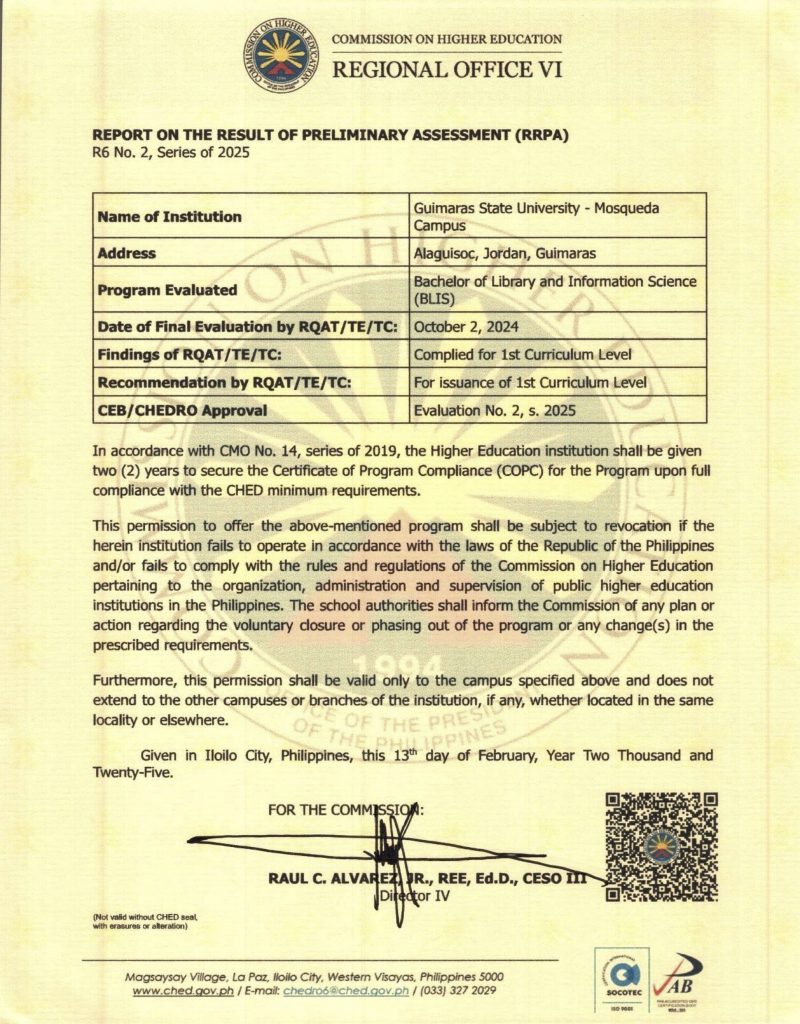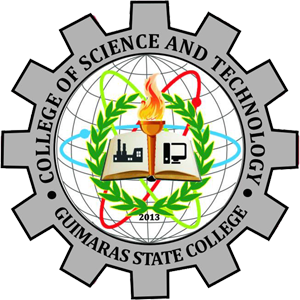Program Objectives
A. Equip students with essential skills in managing, organizing, and accessing information in both physical and digital formats, ensuring proficiency in cataloging, classification, and archiving systems.
B. Encourage students to engage in research methodologies and critical analysis of information systems, allowing them to evaluate, select, and apply the best practices for information retrieval and dissemination in diverse contexts.
C. Prepare students to integrate emerging technologies into library and information services, emphasizing the use of digital tools, databases, and information management software to meet the evolving needs of information users.
D. Instill a strong sense of ethics and responsibility in students, emphasizing the importance of intellectual freedom, privacy, and the role of libraries and information professionals in supporting lifelong learning and community development.
Program Outcomes [CMO 24, s. 2015 Section 6.2]
- Select, evaluate, organize and disseminate print, multimedia, electronic and digital information resources.
- Effectively communicate orally and in writing, at the same time, use a variety of communication methods in a manner that best enables the message to be understood.
- Demonstrate logical and systematic approaches to the accomplishment of tasks.
- Formulate objectives, policies and processes as well as design and manage resources in anticipation of future educational or organizational changes.
- Recognize, analyze and constructively solve problems, provide appropriate direction and assistance, and overcome barriers when necessary.
- Identify users’ needs and wants through reference interviews. customer surveys, complaint logs and other means in order to evaluate the effectiveness of current services and improve these and other practices.
- Work well in groups and seek ways to build team efforts to solve problems and achieve common goals.
- Understand library’s automation systems and the use of computer hardware, software and peripherals, including online collaboration tools (the Internet, the worldwide web, and social networking sites) i) develop information technology solutions (e.g.. library automation system. Website, e-mail system, etc.).
- Conduct significant research projects that will benefit the library and the organization.
- Evaluate and debate information policy (e.g., copyright law, plagiarism, cybercrimes, etc.) and ethical issues applicable in local, national or global context.
- Participate in continuing education activities organized by library associations and other entities.
Enrollment Data
N/A
Permit
RRPA R6 No. 2, Series of 2025

